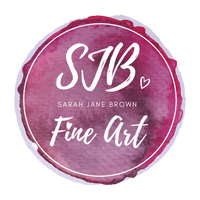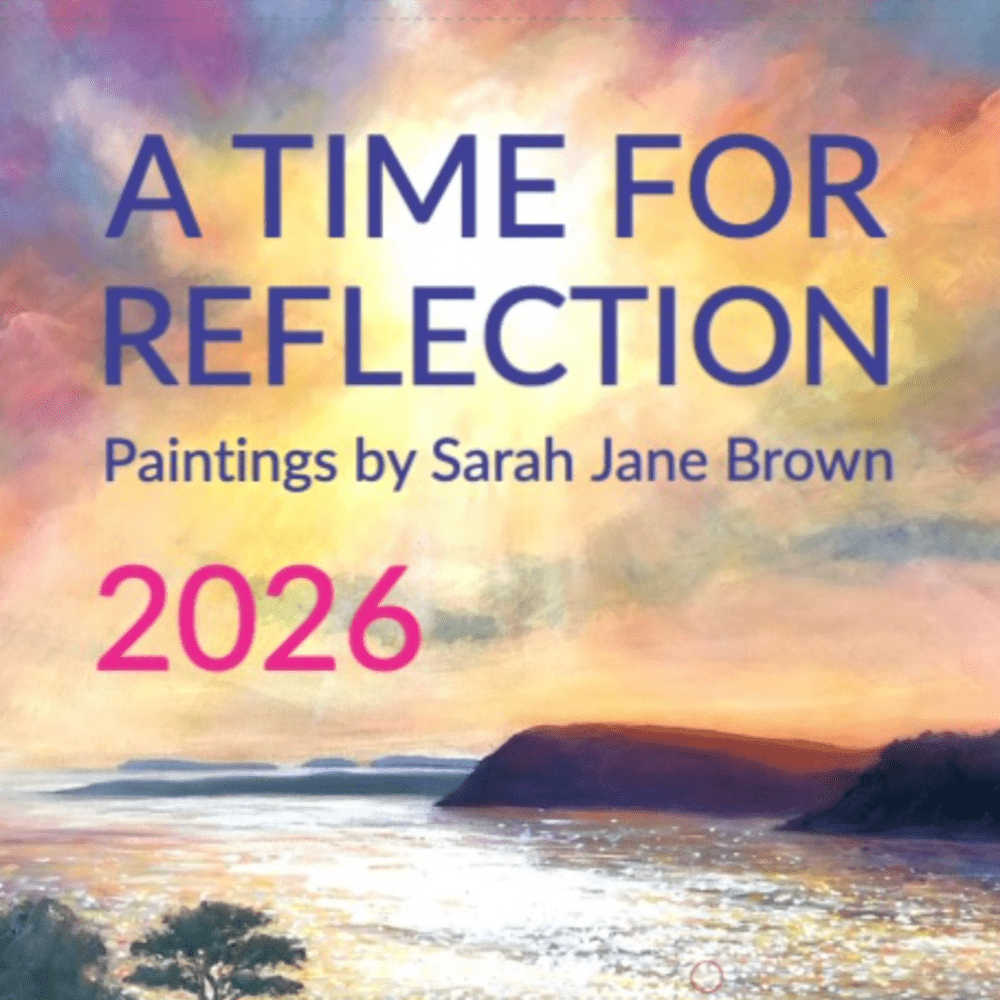It's easy to get caught up in the rat race of life. We're always running from one thing to the next and it can feel like we never have enough time to do anything for ourselves anymore. But learning how to paint is an amazing way to slow down and enjoy some me-time! In this blog post, we'll look at why learning to paint is good for your health and wellbeing as well as some of the other benefits that come with it.
According to the World Health Organisation, "there is now a large body of research showing how arts engagement can enhance multidimensional subjective well-being, including affective well-being (positive emotions in our daily lives), evaluative well-being (our life satisfaction) and eudemonic well-being (our sense of meaning, control, autonomy and purpose in our lives). Further studies have also identified benefits for vitality, rejuvenation, resilience, purpose and quality of life." (1)
That's an impressive statement! So just why is learning to paint, or indeed anything creative, so good for you?
Reducing Stress
When you're painting, you're completely absorbed in the moment. The only thing that matters is what's on the easel in front of you. You're not thinking about work, bills or other stresses in your life - you're simply focusing on the task at hand. This can be really relaxing and calming, which is great for reducing stress levels. Painting can force you to slow down and concentrate, which can be especially beneficial for those who feel constantly rushed and overwhelmed.
However there does not have to be strict 'rules' about brushstrokes, colours or details and you don't have to worry about producing a resolve outcome. If you want to just play, you can go with whatever feels right at the time. This can be very freeing and can help to reduce stress levels as you tap into your natural creativity.
Improving Concentration and Focus
When you're painting, you are thinking about how to convey visual concepts onto paper or canvas with paint and, in the process, making a whole series of evaluations and micro decisions. You sometimes need to pay close attention to what you are doing in order to create a successful piece of artwork.
This is a great way to improve concentration and increase the ability to focus on tasks for longer periods of time.

Improving Memory & Cognition
There is some evidence that activities like learning to paint can slow down cognitive decline in our senior years because it is like push-ups for for the brain! According to a 2014 study learning a new creative and intellectually demanding skill boosts memory function.
An extensive report by The World Health Organisation's (1) says that... "For those already experiencing cognitive decline, participating in arts activities such as painting classes can help to prevent it worsening, with results sustained following the intervention; and creative expressive therapy activities such as drawing with a therapist can improve cognitive functioning, memory, executive function and everyday living ability."
As well as improvement of cognitive function, exercising the brain in this way may also improve connections between different regions.
"The brain has a system of neural pathways dedicated to attention. We know that training these attention networks improves general measures of intelligence. And we can be fairly sure that focusing our attention on learning and performing an art—if we practice frequently and are truly engaged—activates these same attention networks. We therefore would expect focused training in the arts to improve cognition generally." (2. Dana Foundation)
Physical health
Painting can also provide a bit of physical workout! - In addition to all the benefits to the brain, activities like painting engages a person's motor skills, improving coordination and dexterity. Depending on how you like to paint, you may, like me, be standing at an easel for long periods or energetically throwing paint around a large canvas. If you are interested in working 'en plein air’ (outdoors) then you have the added advantage of getting out in the fresh air and walking to find a suitable location.

Observation skills
When learning to paint, you learn how to see. This is one of the most important skills an artist can have and it's something that can be applied in other areas of life too. When painting from observation, you need to take in all the details around you and understand how they work together to create a whole.
This skill can help with problem solving in general, as well as honing your powers of observation - something which can come in handy! You may also start seeing things differently after learning to paint - noticing more colours, textures and interesting shapes.
As you develop an eye for colour combinations and composition you will start to notice these things in other areas of your life, for example choosing a co-ordinated outfit or redecorating your home.
Looking at the world through an artist's eyes can be really beneficial for mental health. When you're painting, you're seeing things in a different way - you're noticing details that you wouldn't normally see. This can help to open your mind up to new possibilities and increase your creativity levels.
“Art is unquestionably one of the purest and highest elements in human happiness. It trains the mind through the eye, and the eye through the mind. As the sun colours flowers, so does art colour life.”John Lubbock
Gratitude
When you start learning how to paint, you look at everything with a new sense of excitement; notice the smallest details that you would usually take for granted! When you become more observant you also start to really appreciate all the incredible things that make up your world. From the vibrant colours of a sunset to the way water droplets shimmer on a leaf, there are so many things to be grateful for! Being more grateful for the world around you is now proven to have a positive impact on your mental health and wellbeing. (4)
Boosting Self-esteem and Social interaction
Creating art is a great way to boost your self-esteem. Whether you're creating something from scratch or copying from another image, every time you draw or paint you are learning something new; you're achieving something and putting your own stamp on it. This can be really empowering and help to build confidence levels.
“If you hear a voice within you say ‘you cannot paint,’ then by all means paint, and that voice will be silenced.” Vincent van Gogh
If you want to learn how to paint, it might be worth joining an art class, It's a great way to meet people. This can help boost your social life and give you the opportunity to make new friends with similar interests.

Self-care through Creative expression
Paint for yourself, not for anyone else. Doing something just for the pleasure of it, with no other aim than making yourself happy, is one of the simplest but most effective forms of self-care.
We all have a creative side, learning to paint can help you express it! Painting is a great way to get your thoughts and feelings out there - without having to say a word. It's also a great way to relax and de-stress after a long day.
“Art is to be moved, to love, to hope, to tremble, to live.” Auguste Rodin
Therapy and Mindfulness
When learning to paint, you are giving yourself an opportunity to explore your own emotions and feelings. This can be really helpful in understanding yourself better and working through any issues you may have. Painting can also be used as a form of 'self-talk'; talking to yourself through your artwork.
If you're feeling overwhelmed or stressed, taking some time out for painting can help clear your head and calm down.
“Art is a wound turned into light.” Georges Braque
One of the key aspects of mindfulness is being in the present moment. When you are painting, you are completely focused on what you're doing - there's no room for anything else. This can help train your mind to be more present, which can carry over into other areas of your life.
Conclusion
There are lots of ways that learning how to paint can be good for mental health. Painting is not only beneficial for learning how to relax, boost self-esteem and improve focus - learning this skill can have benefits that overflow into other areas of life.
If you're interested in giving it a go, there are plenty of classes available both online and offline. You could also try experimenting at home on your own, or with your family - the possibilities are endless! Of course if you'd like to join one of my painting workshops, check out this page for details!
So if you're looking for a way to relax, slow down and enjoy some me-time, learning how to paint is definitely a good way to go. Not only will you be getting in touch with your creative side, but you'll also be reaping all the amazing health benefits that come with it. So what are you waiting for? Pick up a paintbrush and get started!
Sources:
-
World Health Organization - HEALTH EVIDENCE NETWORK SYNTHESIS REPORT. - What is the evidence on the role of the arts in improving health and well-being? -A scoping review by Daisy Fancourt & Saoirse Finn
-
Cerebrum - Dana Foundation - How Arts Training Improves Attention and Cognition
-
Medical News Today - 22 brain exercises to improve memory, cognition, and creativity Medically reviewed by Timothy J. Legg, PhD, PsyD— Written by Jon Johnson
-
The Happiness Advantage - Shawn Achor -Virgin Books (1 Sept. 2011)
- National Council on ageing - Cognition and Seniors: How to Keep Your Brain Fit and What That Means for Your Health
World Health Organisation Report on the evidence on the role of the arts in improving health and well-being.
"This report found a wide variety of evidence for the potential value of the arts in contributing to core determinants of health; playing a critical role in health promotion; helping to prevent the onset of mental illness and age-related physical decline; supporting the treatment or management of mental illness, noncommunicable diseases and neurological disorders..."










I have experienced in your studio all the benefits that you mention. The spark it lit up in me was very fulfilling when I tried for the first time to ‘have a go’.
Back at home I found that simply visualising how I would paint a flower helped me at a traumatic time in my life.
I look forward to a return visit one day to take the beginners course.
Leave a comment